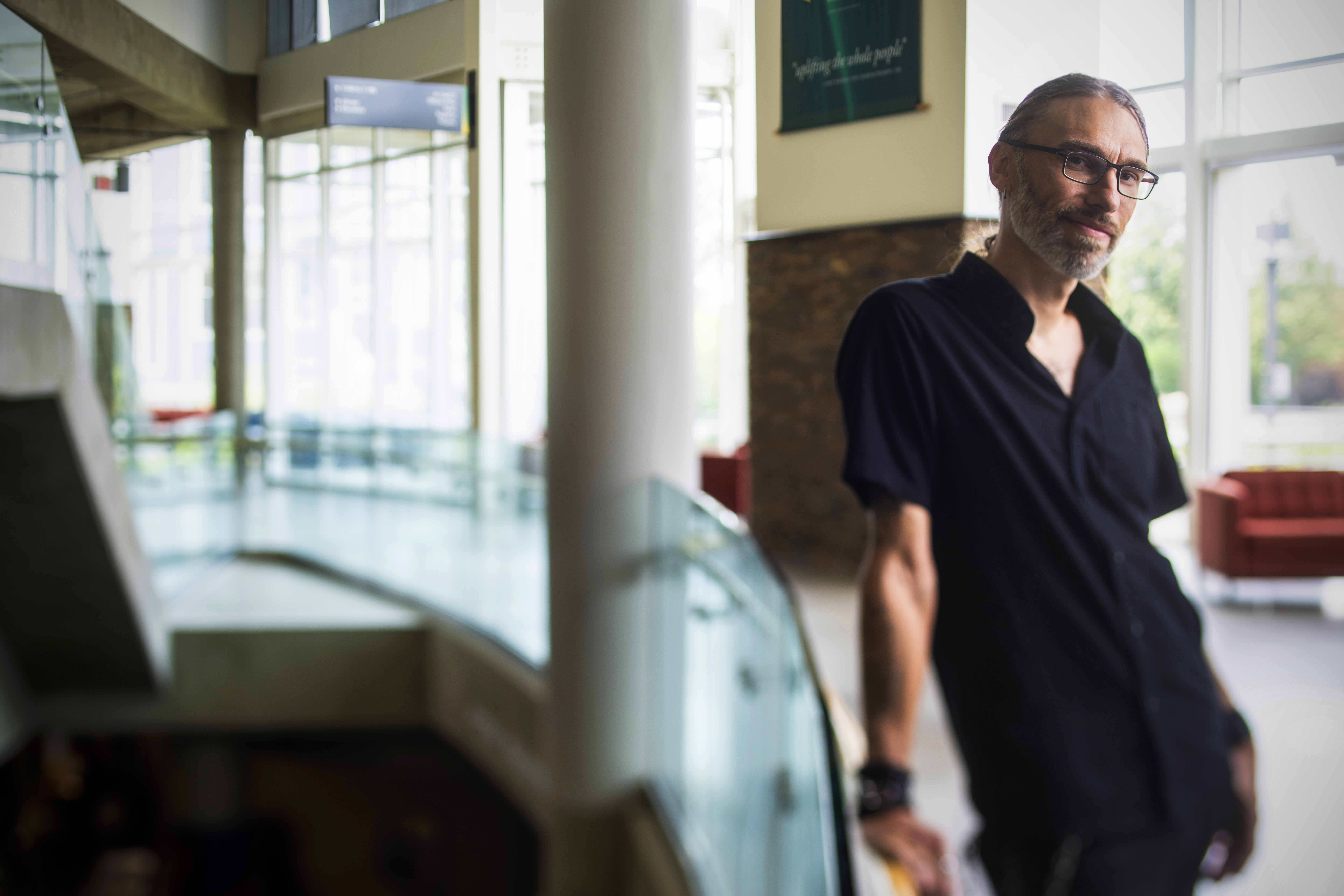Creating a platform for meaningful dialogue and understanding.
Chester Ronning Centre - 27 November 2023

Take a moment to connect with Chester Ronning Centre's director, Dr. Joseph Wiebe, where he discusses plans of the Ronning Centre as well as the community of Camrose.
Q: Last year was your first year as Interim Director of the Ronning Centre. How’d it go? Can you reflect on it a little bit and share any valuable insights you gained in year one?
Last year was an exceptional experience. Both the turnout and engagement with our events was amazing to see. Throughout the year, I had the opportunity to engage with many individuals and organizations in our community, both religious and secular, to strengthen our mission of promoting understanding, dialogue, and collaboration between different faith traditions. It has been exciting to bring diverse community members together to discuss shared issues and create a platform for meaningful dialogue and understanding.
I was also thrilled to launch several new initiatives designed to foster a deeper understanding and appreciation of religious diversity in our society. I am particularly proud of both the Religion and Politics and the Religion and Popular Culture series, which included public lectures and panel discussions that were well-received by our local and regional communities.
Q: The Centre was able to conduct a community needs assessment last year. What was your biggest take away from that assessment?
In general, religious organizations feel grossly misunderstood and misrepresented, and do not find many spaces in which religious voices and ways of life are both welcomed and heard. The challenges of being religious in secular society tended to be consistent across denominational and even interfaith boundaries.
Organizations have a generally favourable impression of institutions like the University of Alberta and believe more can be done within it, especially in partnership with the Ronning Center, to make space for their views and ways of life to be understood.
Suggestions for areas of service that the Ronning Center could expand into abounded, especially about supporting religious students on campus, and opening spaces for meaningful encounter and learning on the topic of religion.
This assessment is an important first step into better understanding religious organizations in northern Alberta for the purposes of developing ongoing engagement with a University-affiliated RSC and addressing both their concerns and their needs.
Q: With that in mind, do you have a vision for the next year of the Ronning Centre? What opportunities do you see on meeting Camrose needs?
There is a great opportunity for creating space for conversations. There’s a thirst for learning and sharing about topics that get to the heart of the human condition. There’s also a strong appetite for talking about current issues to understand the complexity of global trends and events.
We plan to offer several kinds of events—performances, dialogue, lectures, symposia—that can both inform and engage the local community at the University and in Camrose.
Q: Could you give us a sneak peek of what the community can expect from the Ronning Centre the coming year?
The conversation on war and religion in Ukraine was a huge success. Heather Coleman, John-Paul Himka, and David Marples guided us through the political and historical complexities that connect war and religion in Ukraine. We had 85 students and community members participate in this illuminating event.
We’re very excited to host “On the River,” which is a 60-minute live performance of music and video that tells the story of the Cree, Dene and Métis peoples’ community of Fort McKay, through the lens of the life of former chief, Dorothy McDonald-Hyde. Fort McKay is located on the Athabasca River, just north of Fort McMurray, in the midst of major oil sands sites.
The community has experienced tremendous changes in the past 65 years. On The River explores these changes with song and video, telling this story through the lens of the life of former chief Dorothy McDonald-Hyde. It’s a live performance that combines songs written by Asani—an Indigenous women’s trio from Edmonton: Debbie Houle, Sarah Pocklington and Sherryl Sewepagaham—and Maria Dunn.
These songs are combined with video interviews from people who knew Dorothy McDonald-Hydeby by Don Bouzek.
Q: What is the best way for the community of Camrose to engage with the Ronning Centre? Could you share any tips for staying involved with the centre?
The best way to stay in touch with the Ronning Centre is through the newsletter, Facebook, and website.
We’re eagerly anticipating the launch of our new site, which will feature the Centre’s activities and highlight our people, publications, and events.
Our Facebook page is updated regularly and is a great opportunity for engaging with what the Centre is currently doing.
The newsletter provides monthly updates and summaries concisely, and is also a good occasion to reply with thoughts and comments to our email.
We welcome all responses, reviews and insights and deeply appreciate all the emails, DMs, comments, and reactions Ronning Centre supporters have given online and in person.